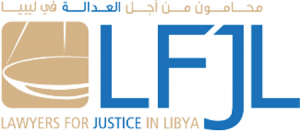Lawyers for Justice in Libya (LFJL) and a number of other organisations have called on the Libyan authorities to quickly accept all the recommendations of the Universal Periodic Review (UPR) on human rights which took place last week. They also want it to publish a plan to implement them with a “clear” timeline.
The UN Human Rights Council (HRC) on Friday approved the report from the UPR, in which 85 UN member states made 202 recommendations.
In a statement representing the civil society organisations (CSOs) in Libya, LFJL noted Libya’s failure to implement most recommendations from the first UPR of 2010. Libya must, said LFJL, take steps to address the obstacles that have stood in the way of implementation.
LFJL also expressed disappointment that the government had failed to consult with any civil society organisations prior to preparing its State Report for the current UPR. The organisation noted that some of the government’s legislatives steps to promote and protect human rights, as stated in the State Report, “remain unimplemented or do not conform to international human rights standards”.
LFJL summarised the key recommendations that came from last week’s UPR, highlighting where current legislation falls short of protecting human rights.
Noting that a primary recommendation was to make a plan for “transitional justice and accountability”, LFJL called for transparent investigations into human rights abuses and for an end to impunity.
On transitional justice, LFJL pointed out that Law 29 of 2013 provided for measures to facilitate the release of conflict-related detainees who were unlawfully imprisoned, however the deadline for transferring all detainees into state custody passed on 2 March 2014 with no action taken.
Another recommendation was that Libya take stronger action to end to torture and abductions. Law 10 of 2013, according to LFJL, addresses torture but did not go far enough. “It is vital that the State of Libya adopt a comprehensive anti-torture strategy”, urged the organisation. UN member states had called on Libya to abide by international principles on human rights “including while fighting terrorism”.
Little has been done to address human trafficking, said LFJL, or the inhumane treatment of migrants and refugees. “The State of Libya has an obligation to enforce human rights and refugee law if it seeks to become a country that upholds the rule of law and provides access to justice for those most vulnerable. We call on Libya to ratify the convention and to enact domestic provisions to create a legitimate framework to manage migration,” the statement read.
UN member states recommended more be done to protect the media and civil society. LFJL pointed out that Law 15 of 2012 restricts freedom of press by prohibiting the discussion of fatwas issued by Dar Al-Ifta, calling for a repeal of such laws.
The government must enact laws that protect civil society, said LFJL, noting, “neither the State Report nor the recommendations made during the review referenced protections for CSOs”.
Regarding the protection of freedom of speech and freedom of assembly, Law 65 2012 imposes “arbitrary restrictions on protestors” that are not in line with international standards, said LFJL. Furthermore, laws criminalising speaking against the 17 February revolution restrict free speech, the organisation stated.
In addressing rights for women and their protection, LFJL noted Libya’s refusal to sign the Joint Statement to Promote and End Gender-Based Violence at the 57th Session of the Commission on the Status of Women. This is a “step away from Libya’s commendable accession to the Convention on the Elimination of All Forms of Violence Against Women (CEDAW)”. They also urged, along with UN member states, Libya to allow women to pass on their nationality to their children, regardless of the nationality of the father.
Member states urged protection of and rights for internally displaced persons (IDPs), including right to return to place of origin. LFJL noted an increase of attacks against IDP camps, as well as the rise, overall, in the number of IDPs in Libya, a number said to be around 500,000.
LFJL also called on Libya to do more to prevent discrimination against minority groups. Provisions in the law, for example, to protect the linguistic rights of minority groups such the Amazigh and Tebu were “ambiguous” or remained unimplemented, the statement read. Furthermore, Libya had witnessed multiple attacks against religious groups [such as Sufis], and the government had done little to prevent these from occurring, stated LFJL.
“The undersigned organizations call on the State of Libya to accept and take real steps to implement all recommendations, in consultation with national and international CSOs. We call on the State of Libya to turn the public commitments it has made during the review into actions and to ensure that human rights form the cornerstone of all legal measures and practices,” the statement concluded.
Signatories include LFJL, Al Nissa Qadimat, Mercy Association for Charitable and Humanitarian Aid, Cairo Institute for Human Rights Studies, National Libya Organisation for the Development of People with Disabilities, Libyan Association for Tebu Culture and the Libyan Centre for Freedom of Press.
By Libyan Herald staff.


